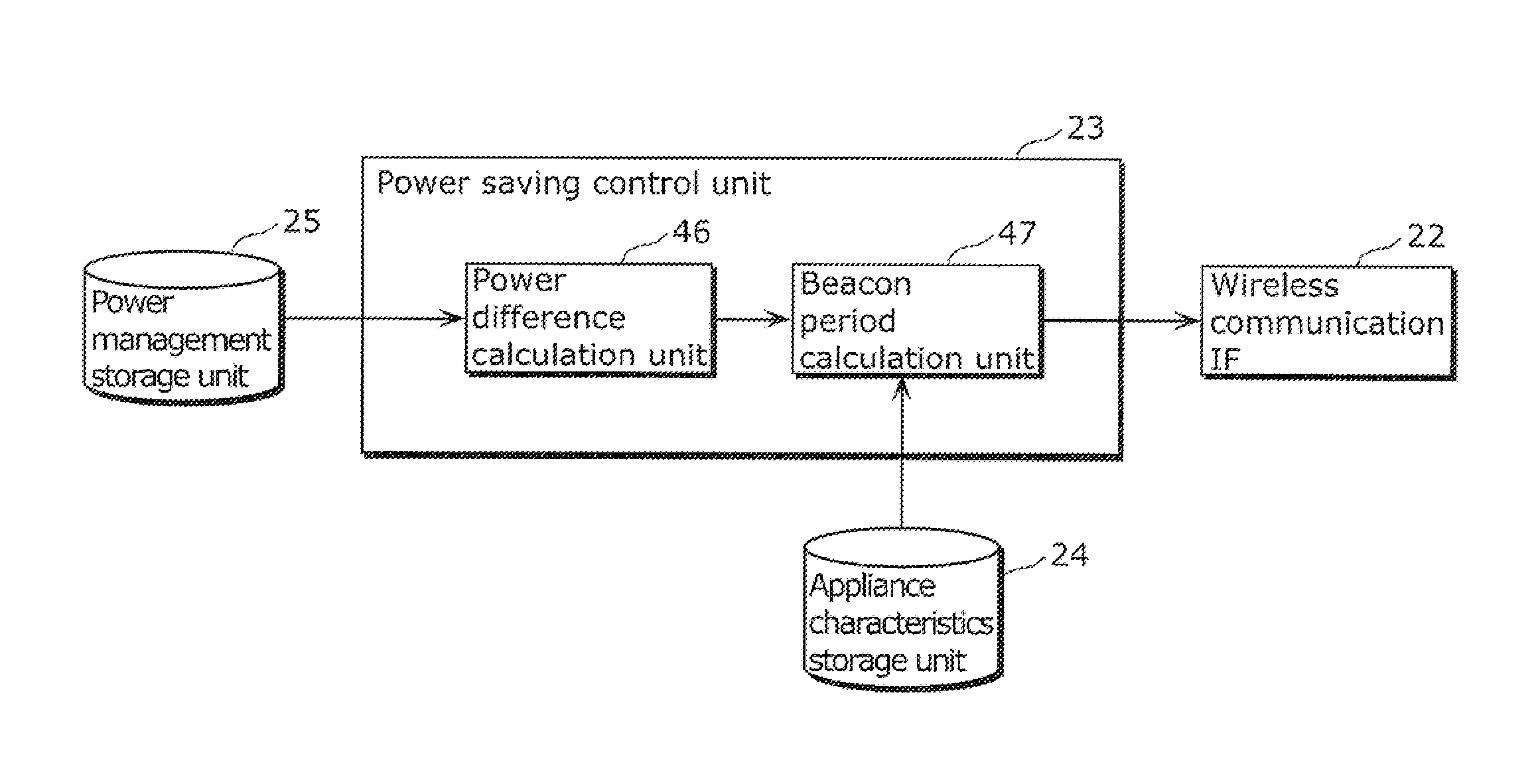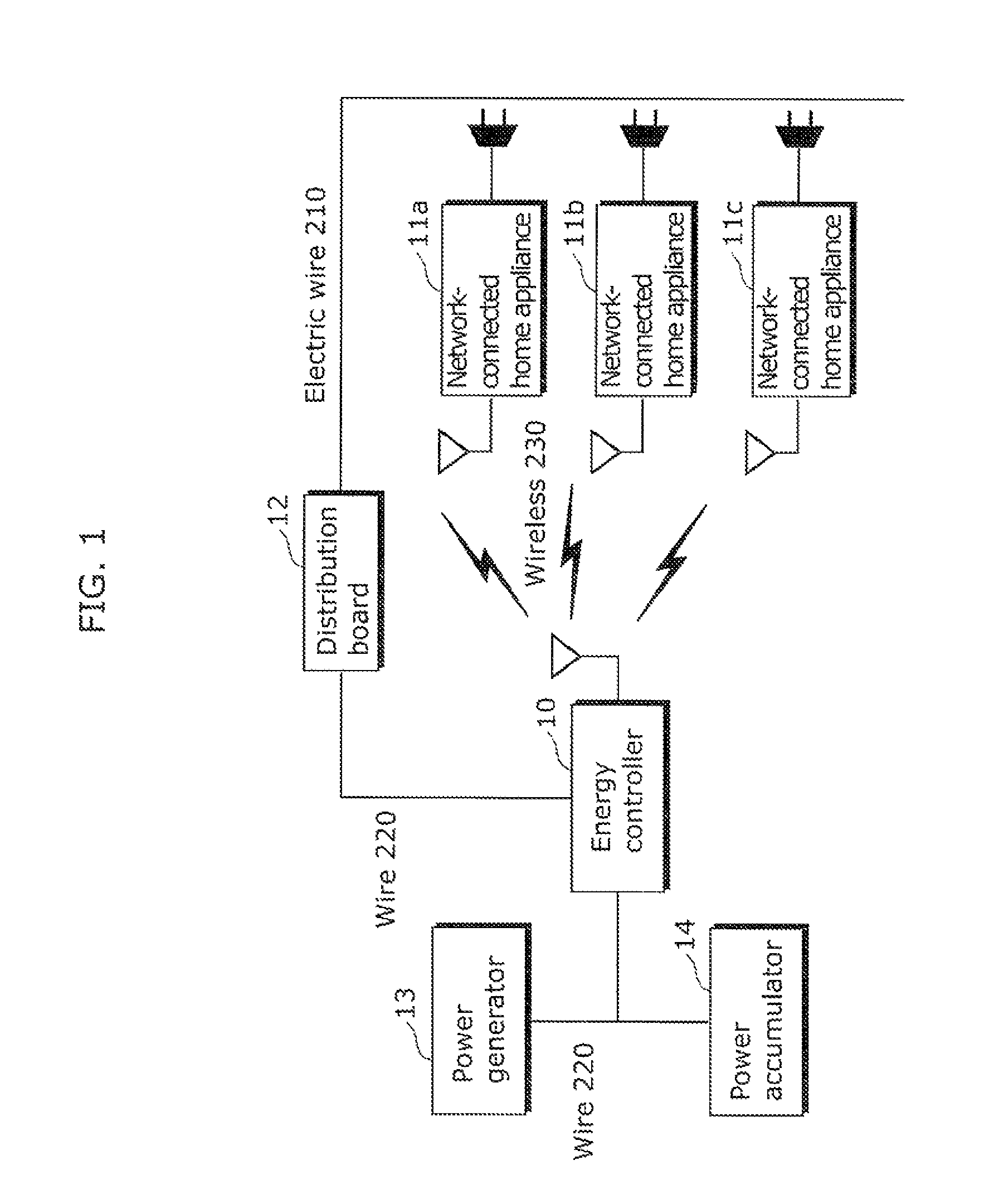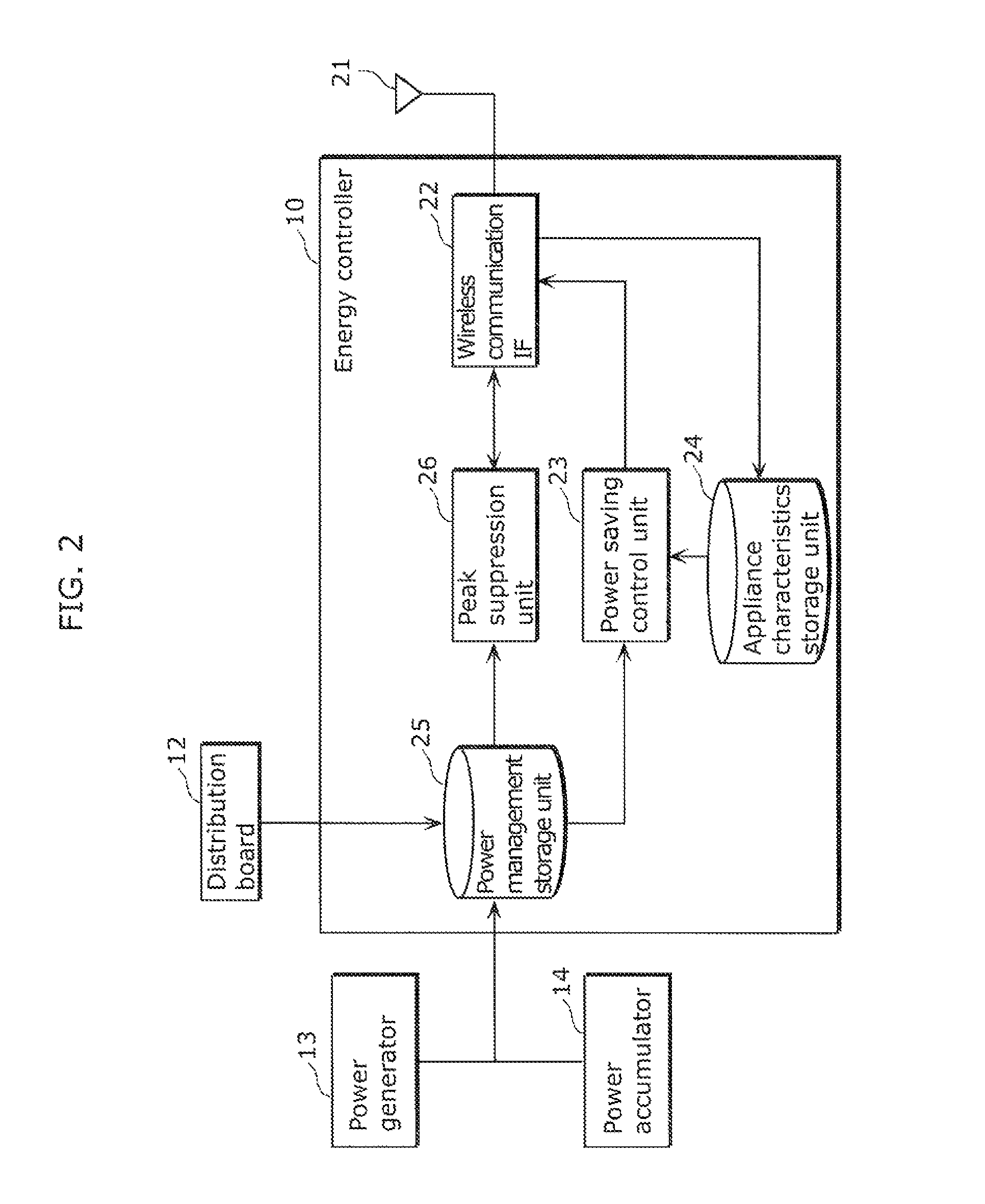Power control device for home appliances
a technology for controlling devices and home appliances, applied in power management, high-level techniques, instruments, etc., can solve problems such as the inability to determine whether an active state is continued or a sleep state is activated, and achieve the effect of low power consumption
- Summary
- Abstract
- Description
- Claims
- Application Information
AI Technical Summary
Benefits of technology
Problems solved by technology
Method used
Image
Examples
embodiment 1
[0109]FIG. 1 is a diagram showing an example of a network configuration of Embodiment 1 of the present invention.
[0110]In FIG. 1, an energy controller 10 is connected to network-connected home appliances 11a, 11b, 11c by a wireless 230. The energy controller 10 is included in “communication device” described in the accompanying claims, and the network-connected home appliances 11a, 11b, 11c are included in “communication terminal device” described in the accompanying claims.
[0111]The wireless 230 may be a connection according to a specific low power wireless which conforms to, for example, the IEEE 802.15.4 standard, the IEEE 802.11 standard, or ARIB (Association of Radio Industries and Businesses).
[0112]A distribution board 12 supplies power to all the electric appliances (for example, network-connected home appliance 11a) in a house via an electric wire 210, and can measure the total power consumption in the house. The distribution board 12 is connected to the energy controller 10...
embodiment 2
[0208]In the above-described Embodiment 1, a beacon period is calculated based on the power value difference between the available power supply value and the total power consumption value, and the characteristics of the rate of change in the power consumption of the home appliances, and then the beacon period is controlled. Consequently, when the power value difference has a large margin for peak suppression, a longer beacon period is set, and thus low power consumption is achieved, while when the power value difference has a small margin for peak suppression, a shorter beacon period is set, and thus a request for peak suppression can be immediately processed.
[0209]On the other hand, in the present Embodiment 2, after a beacon period is calculated, the beacon period is compared with the beacon value in the stored beacon table and then final beacon period is determined. Consequently, the beacon period can be dynamically changed in a system in which the beacon period is defined by sev...
embodiment 3
[0228]In the above-described Embodiment 1, a beacon period is calculated based on the power value difference between the available power supply value and the total power consumption value, and the characteristics of the rate of change in the power consumption of the home appliances, and then the beacon period is controlled. Consequently, when the power value difference has a large margin for peak suppression, a longer beacon period is set, and thus low power consumption is achieved, while when the power value difference has a small margin for peak suppression, a shorter beacon period is set, and thus a request for peak suppression can be immediately processed.
[0229]On the other hand, in the present Embodiment 3, after a beacon period is calculated, the beacon period is compared with allowable delay times for the applications which are utilized in the wireless network system, and then final beacon period is determined. Consequently, setting of a beacon period exceeding the allowable ...
PUM
 Login to View More
Login to View More Abstract
Description
Claims
Application Information
 Login to View More
Login to View More - R&D
- Intellectual Property
- Life Sciences
- Materials
- Tech Scout
- Unparalleled Data Quality
- Higher Quality Content
- 60% Fewer Hallucinations
Browse by: Latest US Patents, China's latest patents, Technical Efficacy Thesaurus, Application Domain, Technology Topic, Popular Technical Reports.
© 2025 PatSnap. All rights reserved.Legal|Privacy policy|Modern Slavery Act Transparency Statement|Sitemap|About US| Contact US: help@patsnap.com



